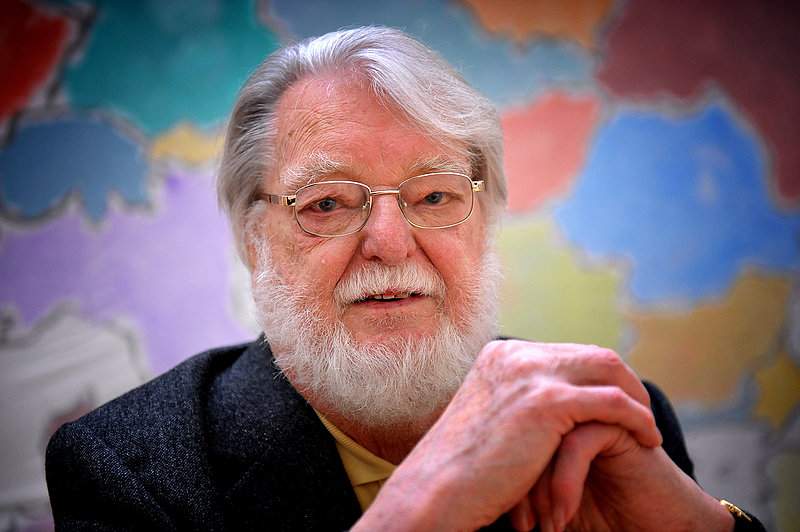Fundamental needs of Max-Neef What are?

- 4741
- 131
- Miss Drew Stroman
Human beings, throughout our development, have different needs that we must meet to guarantee our well -being. In this sense, there are several theories about what these needs are and how we can fill them. One of the best known models is that of the fundamental needs of Max-Neef.
For this author, fundamental human needs are limited, finite and can be easily classified. Also, it breaks with the idea that there is a hierarchy such as those proposed by other classical theories. In this article, we will know more about this approach and what utility is in modern science.
Content
Toggle- Biography of Artur Manfred Max-Neef
- What is human scale development?
- The fundamental needs of Max-Neef
- Redefining the concept of poverty
- References
Biography of Artur Manfred Max-Neef
In order to better understand his work, it is important to know a little more about the life of its author. So, Artur Manfred Max-Neef was a Chilean economist of German descent, born on October 26, 1932 in Valparaíso, Chile. He studied economics at the University of Chile and began his career as a professor at the University of California, Berkeley in the 60s.
Throughout his career, Max-Neef dedicated himself to traveling through different regions of Latin America in order to study the poor regions. This involved not only approaching and taking data with different instruments, but also living in these communities. In 1982, he published The barefoot economy: signs from the invisible world, A work where he tells his trips throughout South America. Later, he would publish other works in relation to poverty in Third World countries.
One of the most notable contributions of his career is Human scale development: concepts, applications and reflections. This work was developed in collaboration with Antonio Elizalde and Martín Hopenhayn where they exhibit different problems and reflections on human development and growth. From there arises the model of the fundamental needs of Max-Neef.
What is human scale development?
Following the above, human scale development is a model that focuses on satisfying essential human needs. This in order to contribute to the individuals of a community to have a higher level of self -confidence. With the aim of promoting sustainable development in Latin America, the authors recommend following these principles:
- Development is related to people and not things. Theorists point out that elements such as gross national income should not be considered as development indicators. Instead, we should focus on measuring the quality of life that is understood as the ability of an individual to meet their needs.
- Fundamental human needs are few, finite and classifiable. This postulate rejects the idea that human needs are infinite and can never be satiated.
- Fundamental human needs are the same in all historical cultures and periods. Often, it is usually believed that needs vary depending on the region and the historical context. However, the authors defend the idea that true needs are equal in all cases.
These three principles make up the pillars of the model of the fundamental needs of Max-Neef. Any plan that aims to promote the development and reduction of poverty, should take into account these factors. Part of the work is dedicated to criticizing the main errors that have been made in history and that the poverty situation has worsened.
 Body dysmorphia or Dorian Gray syndrome: imaginary ugliness
Body dysmorphia or Dorian Gray syndrome: imaginary ugliness The fundamental needs of Max-Neef
Continuing with the above, Max-Neef and its collaborators propose that there are 9 fundamental human needs. As mentioned above, these are the same in all historical cultures and contexts. The only thing that can vary are the strategies that a population applies to fill these needs.
- Subsistence. It is related to the physical and mental health that are obtained through things such as housing, work and food.
- Protection. It has to do with care and autonomy, it depends on things such as health and social security services.
- Keen. It is associated with emotions and the ability to express them, respect, humor and generosity. His satisfaction is given through links with family, friends and other people.
- Understanding. Keep a link with curiosity, critical reasoning capacity and intuition. The tools to meet this need are educational institutions and the family environment.
- Stake. Is related to dedication and receptivity, responsibilities, rights and duties. This need can be satisfied in spaces such as political parties, civil associations, churches, communities, etc.
- Leisure. Here are tranquility, imagination and spontaneity. The parks and intimate spaces are places where these needs can be met.
- Creation. Refers to audacity, capacity for invention, curiosity and imagination. The most appropriate spaces to meet this need are art workshops and other places for expression.
- Identity. The sense of belonging, customs and consistency comes into play. Here elements such as language, religion, traditions, common spaces, etc.
- Freedom. This need is satisfied through equal rights, where individual differences are taken into account.
Redefining the concept of poverty
Another interesting aspects of the Max-Neef model is that it allows to redefine the meaning of poverty. In general, it is understood that a person is poor when their economic income is below a certain level. However, under this approach, poverty depends on inability or difficulty in satisfying needs. In fact, their authors do not speak of a single poverty, but of multiple types of poverty that can coexist.
For example, a person can meet their subsistence, protection, participation and leisure needs. But, I could have problems in the category of affection because society rejects it, so there we would say that there is poverty. Thanks to this new concept it is possible to better understand each person's situation in a community.
In conclusion, the Max-Neef's fundamental needs model is a revolutionary approach to human development. At the end of the day, human beings are much more than their material possessions and the quality of life does not depend only on these.
Abraham Maslow's theory of human needs
References
- Max-Neef, m., Max-Neef, m. TO., & Kohr, L. (1986). Barefoot Economy: Signals from the invisible world (No. 260.7 Max).
- Max-Neef, m. (1992). Human scale development: an option for the future. Oikos, (07), 53-66.
- Max-Neef, m. TO., Elizalde, a., & Hopenhayn, M. (2006). Human scale development: concepts, applications and some reflections (Vol. 66). Editorial Icaria.

